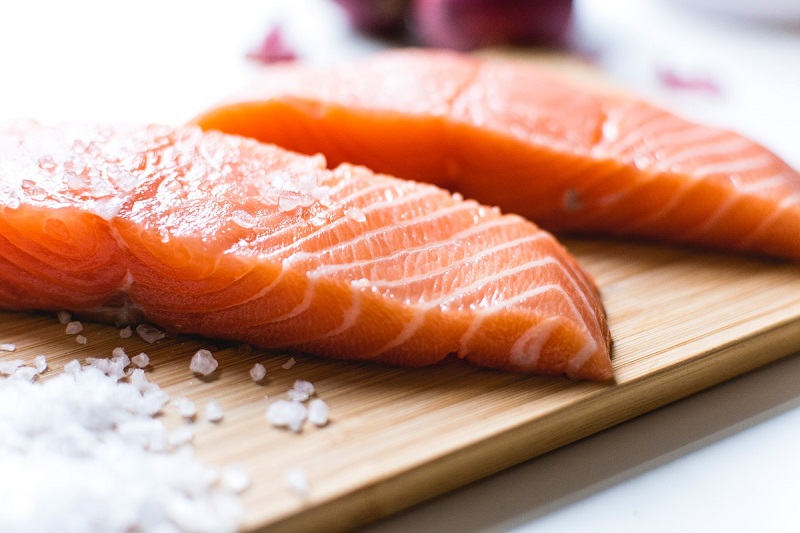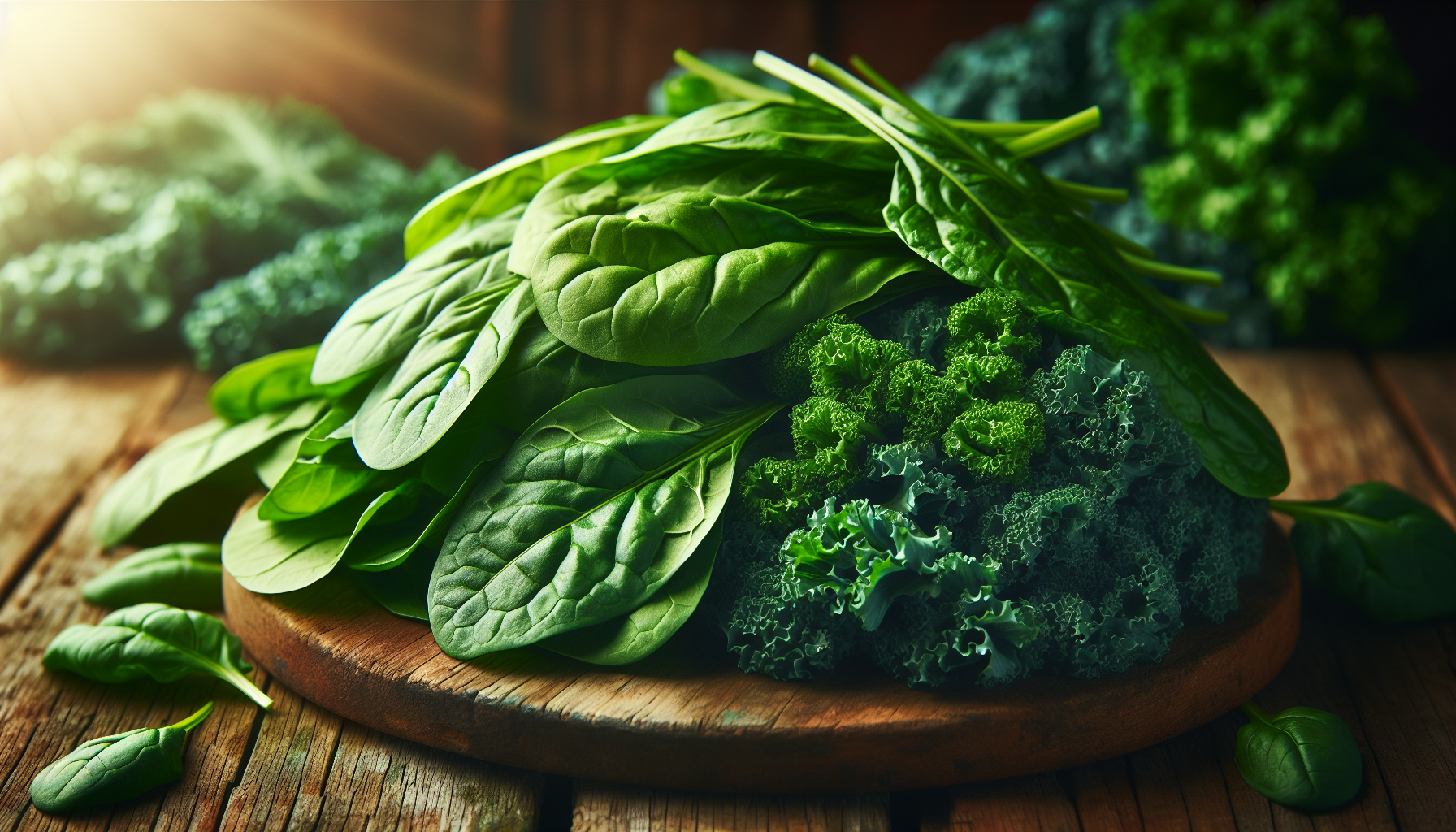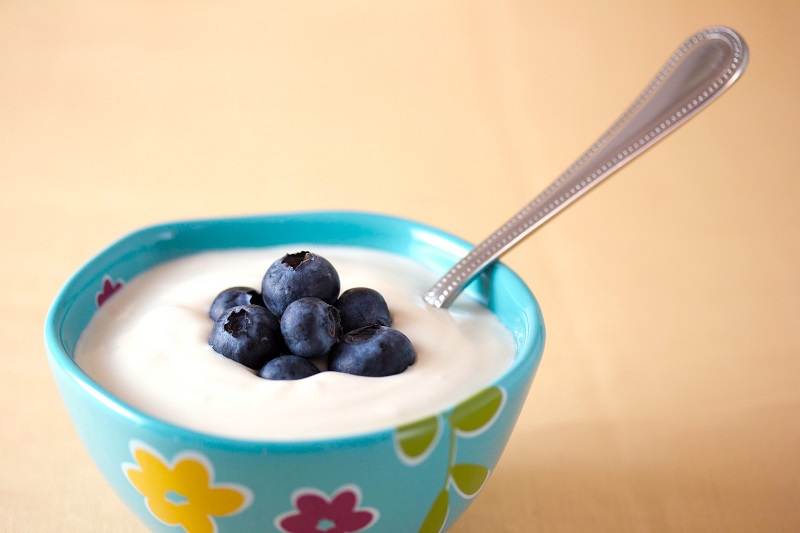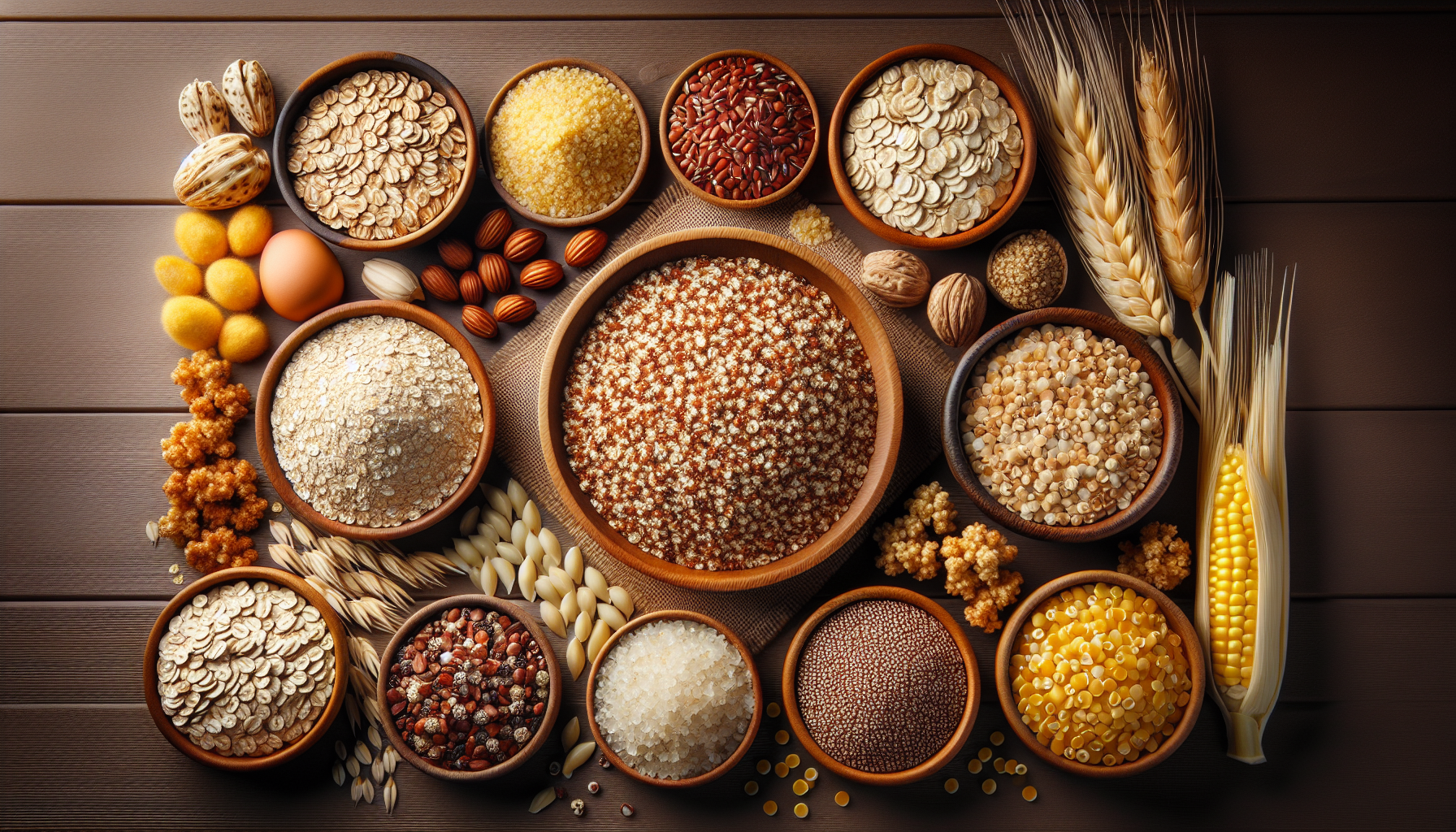Navigating the challenges of ageing can be made a touch easier with the right dietary choices. It’s fascinating how what we eat can influence not just our physical health, but our mental well-being too.
Today, we’re diving into a selection of nine amazing foods that reduce stress and anxiety, specifically curated for older adults. Embracing these foods that reduce stress and anxiety can play a pivotal role in enhancing daily life, allowing for more relaxed and joyous golden years.
Whether you’re looking to refine your diet or assist someone dear to you, these insights will provide valuable guidance. So, let’s explore how simple changes to your meals can make a significant impact on managing stress and anxiety.
Contents
- 1 The Role of Anxiety and Stress in Human Survival
- 1.1 Prefer to listen rather than read?
- 1.2 Can What You Eat Really Affect Your Mood?
- 1.3 Nine Foods That Reduce Stress and Anxiety in Older Adults
- 1.3.1 Fatty Fish (Salmon, Mackerel, Sardines)
- 1.3.2 Leafy Greens (Spinach, Kale)
- 1.3.3 Berries (Blueberries, Strawberries)
- 1.3.4 Nuts and Seeds (Almonds, Walnuts, Pumpkin Seeds)
- 1.3.5 Dark Chocolate
- 1.3.6 Turmeric
- 1.3.7 Probiotics (Yogurt, Kefir, Kimchi)
- 1.3.8 Complex Carbohydrates (Oats, Quinoa, Whole Grains)
- 1.3.9 Chamomile Tea
- 1.4 A Question of Courage and Imagination
- 2 Food Can Be Empowering
The Role of Anxiety and Stress in Human Survival
Human beings are creatures who care about the future and the past. That is our curse as a species and it always has been. In evolutionary psychology, experts usually explain stress and anxiety as parts of the “fight or flight” reflex that our brains activate in the presence of danger.
Throughout history, stress has always been a natural reaction to perceived dangers, such as detecting a predator lurking in the tall grass. Even in today, this instinct triggers the release of adrenaline and cortisol, vital chemicals that prepare the brain and body to confront imminent dangers. This phenomenon is commonly known as “the cognitive aspect of anxiety.”
Prefer to listen rather than read?
The reflex is naturally selected. Animals that are incapable of learning from stress often lack the guts to drink water in places along the riverbank where previous experience should otherwise tell them that crocodiles wait in ambush. They become lunch as a result.
Or, in the case of organisms that lack the cognitive capacity to feel anxiety, they get flattened, crushed underfoot by a herd of mammoths because their instincts failed to warn them of an impending threat to their survival.
Researchers today are inclined to believe that human beings have survived and, indeed, learned to dominate this world precisely because they are able to feel stress and anxiety.
Hoping for good outcomes and worrying about bad ones comes with being a member of the species Homo Sapiens. It is a universal reality among us, and humans have lived with both for as long as the species has been around.
So much so that the words “stressed” and “anxious” have in themselves become universal terminologies that may mean different things to different people.

Many individuals express their apprehension by describing feelings of nervousness, jitters, and panic. They may even experience physical symptoms such as stomach discomfort. Some might even use colorful language to convey just how frightened they truly are.
Each of these moods is arguably a form of stress or anxiety. But despite the multitude of variations, we know exactly – or at least we have a clear idea – as to what each of these expressions means.
That’s why it is difficult to imagine how regular helpings of nuts and fish can help stop the enormous tsunamis of worry and distress that rise and come crashing down onto the lives of countless millions of older people every day.
Seniors who care for ill spouses, who look after orphaned or abandoned grandchildren, who are battling the consequences of grief, disease, and failing health, or who are worried about their ability to live independently in the future, they all have sufficient reason to feel anxious and stressed.
Will regular helpings of nuts and some fish in our diets really help to quiet our many stressful and anxious apprehensions?
Can What You Eat Really Affect Your Mood?
It turns out that the answer is yes; some foods do have a surprisingly significant effect on your mood. In recent years, large population studies have found that people who consume more nutrient-dense foods report less anxiety and greater levels of mental well-being.
Researchers published the results of one of the first major trials to shed light on this subject. They recruited 67 clinically depressed individuals and split them into two groups. They asked one group to learn and follow a Mediterranean-style diet guided by a dietitian. The other group received social support without dietary guidance.
Before the trial, both groups had habitually consumed high amounts of sugary foods, processed meats, and salty snacks while lacking fibre, lean proteins, fruits, and vegetables.
However, the group that stuck to foods that reduce stress and anxiety made significant dietary shifts. They stuck to a diet of nuts, beans, fruits, and vegetables. They chose whole grains over refined ones and swapped processed meats for seafood and lean red meats, as well.
Both groups continued their prescribed medications, as the study aimed to explore whether foods that reduce stress and anxiety could complement existing treatments rather than replace them.
After 12 weeks, both groups showed improved depression scores, possibly due to the added support from the trial.

The group that stuck to foods that reduce stress and anxiety experienced notably greater improvement. Doctors classified roughly a third of those individuals as no longer depressed, compared to only 8 percent in the control group.
This suggests that adopting a healthier diet could significantly contribute to alleviating depression symptoms alongside other lifestyle adjustments.
“Nutrition is not the only thing you need to take care of for your mental health,” says Dr. Drew Ramsey, author of the book, “Eat to Beat Depression and Anxiety,” and founder of the Brain Food Clinic in New York. “Mental health is a lot of work, but nutrition has got to be something you get right.”
How Foods That Reduce Stress and Anxiety Benefit Mental Processes
The research analysis has not been the only study on the subject. In recent randomized trials, including one involving 150 adults with depression, researchers discovered that participants who followed a Mediterranean diet for three months experienced significant reductions in symptoms of stress and anxiety.
Exactly how do supposed foods that reduce stress and anxiety in older people work on our mental well-being, anyway?
Over the years, a growing body of research has provided intriguing hints about how these foods function to affect our mood. One way is by promoting a healthy digestive system.
The bidirectional communication pathway between the gastrointestinal tract (the gut) and the brain is called the gut-brain axis. This connection is facilitated by various pathways, including the nervous system, immune system, and hormonal signals.
Several types of food interact with this axis to create a positive influence on our mood and mental well-being.

A healthy diet plays a crucial role in maintaining a balanced and diverse gut microbiome, the community of trillions of microbes living in our digestive system, including bacteria, fungi, and viruses.
Since these gut microbes are involved in numerous essential functions, including the production of neurotransmitters such as serotonin and dopamine, they affect our feelings of happiness, pleasure, and overall mood stability.
The gut microbiome’s ability to produce these neurotransmitters suggests that its composition and health can significantly impact our mental well-being.
For example, foods that contain the amino acid tryptophan-like turkey, chicken, seafood and nuts- can boost the level of serotonin in your brain.
“Eating a salad is not going to cure depression,” says Dr Jacka of the Food & Mood Centre at Deakin University in Australia, who led the 2017 study. “But there’s a lot you can do to lift your mood and improve your mental health, and it can be as simple as increasing your intake of plants and healthy foods.”
Nine Foods That Reduce Stress and Anxiety in Older Adults
Most psychiatric professional groups have refrained from prescribing specific diets for mental health because of a need for further research in this area.
But public health experts throughout the world have already started urging people, especially older adults, to adopt healthy dietary habits that include foods that reduce stress and anxiety, among other brain-related benefits.
For instance, the Royal Australian and New Zealand College of Psychiatrists have released clinical guidelines advising clinicians to prioritize addressing foods that reduce stress and anxiety and exercise before initiating medication or psychotherapy for patients.
Below are nine types of the most highly recommended foods that reduce stress and anxiety in seniors.
Fatty Fish (Salmon, Mackerel, Sardines)
Rich in omega-3 fatty acids, fatty fish increase serotonin levels in people, which can improve mood and reduce anxiety.
Omega-3s also have anti-inflammatory properties that may benefit brain health. This is why fatty fish are among the most popular foods that reduce stress and anxiety in seniors.

Leafy Greens (Spinach, Kale)
Leafy greens are also among the most popular foods that reduce stress and anxiety in seniors. Packed with magnesium, leafy greens help to regulate cortisol levels in the brain, effectively reducing stress.
These vegetables also contain high levels of folate, which supports the production of dopamine, a neurotransmitter associated with pleasure nad reward.

Berries (Blueberries, Strawberries)
High in antioxidants and vitamin C, berries combat oxidative stress and inflammation in the body, thus reducing stress-related damage. This is why berries are high on the list of foods that reduce stress and anxiety in older adults.

Nuts and Seeds (Almonds, Walnuts, Pumpkin Seeds)
Nuts and seeds are yet another highly popular item on the list of foods that reduce stress and anxiety in seniors. These foods contain magnesium, zinc, and healthy fats that support brain function.

Dark Chocolate
There’s a reason why you often find yourself reaching for chocolate in moments of stress and anxiety. Dark chocolates, in particular, contain the fatty acid N-acyl ethanolamines, which provides euphoric effects, helping to relieve negative moods
Rich in flavonoids, dark chocolate can also boost mood by increasing serotonin levels in the brain. It also contains antioxidants that reduce stress.

Turmeric
Curcumin, the active compound in turmeric, has anti-inflammatory and antioxidant properties that may positively affect brain health and reduce symptoms of anxiety.
Turmeric is widely used as a spice in South Asian and Middle Eastern cuisine. It gives curry dishes their distinctive yellow colour and flavour. It is also used as a colouring agent in cheese, butter, and other foods.

Probiotics (Yogurt, Kefir, Kimchi)
Gut health is linked to mental health. Probiotics in these foods promote a healthy gut microbiome, which – as we earlier pointed out – can positively impact mood and reduce stress.
This is why yogurt, kimchi, and kefir are among the recommended foods that reduce stress and anxiety in seniors.

Complex Carbohydrates (Oats, Quinoa, Whole Grains)
These foods aid in the production of serotonin, helping to stabilize mood and reduce stress. Unlike simple carbohydrates, complex carbohydrates break down and release energy gradually once consumed.
This digestive process helps your body maintain stable blood sugar levels, which are essential for mood stability.

Chamomile Tea
While not a food, chamomile tea has calming properties due to its antioxidants. It can help reduce anxiety and improve sleep quality. In fact, chamomile is widely regarded as a mild tranquillizer and sleep-inducer.
Scientists have linked some of its sedative effects to the flavonoid, apigenin, that binds to benzodiazepine receptors in the brain.
In general, foods that reduce stress and anxiety in seniors contain nutrients that support brain health, regulate neurotransmitters, combat inflammation, or promote a healthy gut—all of which can contribute to mental well-being.
If you want to learn more about healthy diets or even Mediterranean cuisine and cooking, you will find many affordable short courses online.
But remember, it’s essential to consult a healthcare professional or nutritionist before making significant dietary changes, especially for seniors with existing health conditions or taking medications that may interact with certain foods.

A Question of Courage and Imagination
Ultimately, we must accept that stress and anxiety are still mysteries. We may have charted its surface contours, but we know little of what goes on underneath them.
Maybe that is because stress and anxiety are jumbled up with our own personal experience of life. Do we really know anyone, friends and family, included as well as we know ourselves? If not, how can we really know the things that others fear and worry about the most?
Some people seem to feel no anxiety or stress at all. Sometimes, we marvel at these people for their “courage” but, in reality, we suspect that they are either born lucky – or they lack imagination.
The monster under your bed may be imaginary, but the fact that you are anxious about it proves that you have that much imagination. Other people are afraid of heights because they cannot help but imagine themselves falling.
Most of us have social anxieties because we imagine ourselves less interesting than the other guests at the party. That is until our brain shuts off the release of cortisol and other chemicals that make us feel stressed and anxious. Then we feel better.
Food Can Be Empowering
While larger medical psychiatry organizations have yet to advocate for a specific diet of foods that reduce stress and anxiety in seniors, many individual psychiatrists and psychologists have already incorporated them into their practice.
Dr. Ramsey combines psychiatry with nutrition to assess patients. He focuses on foods that reduce stress and anxiety, emphasizing nutrients like fibre, unsaturated fats, antioxidants, and omega-3 fatty acids.
Promoting compounds like BDNF, which supports brain health, Dr. Ramsey advocates for intelligent dietary interventions as a complement to traditional psychiatric methods. This approach recognizes the impact of nutrition on mental health, providing a more holistic approach to well-being that considers both the mind and body. Dr. Ramsey believes that choosing the right foods can be empowering.
According to him, we have no control over our genes, our lineage, or unforeseen traumatic incidents. However, one aspect we can influence is our diet, providing individuals with practical steps to maintain their brain health daily. What do you think?



